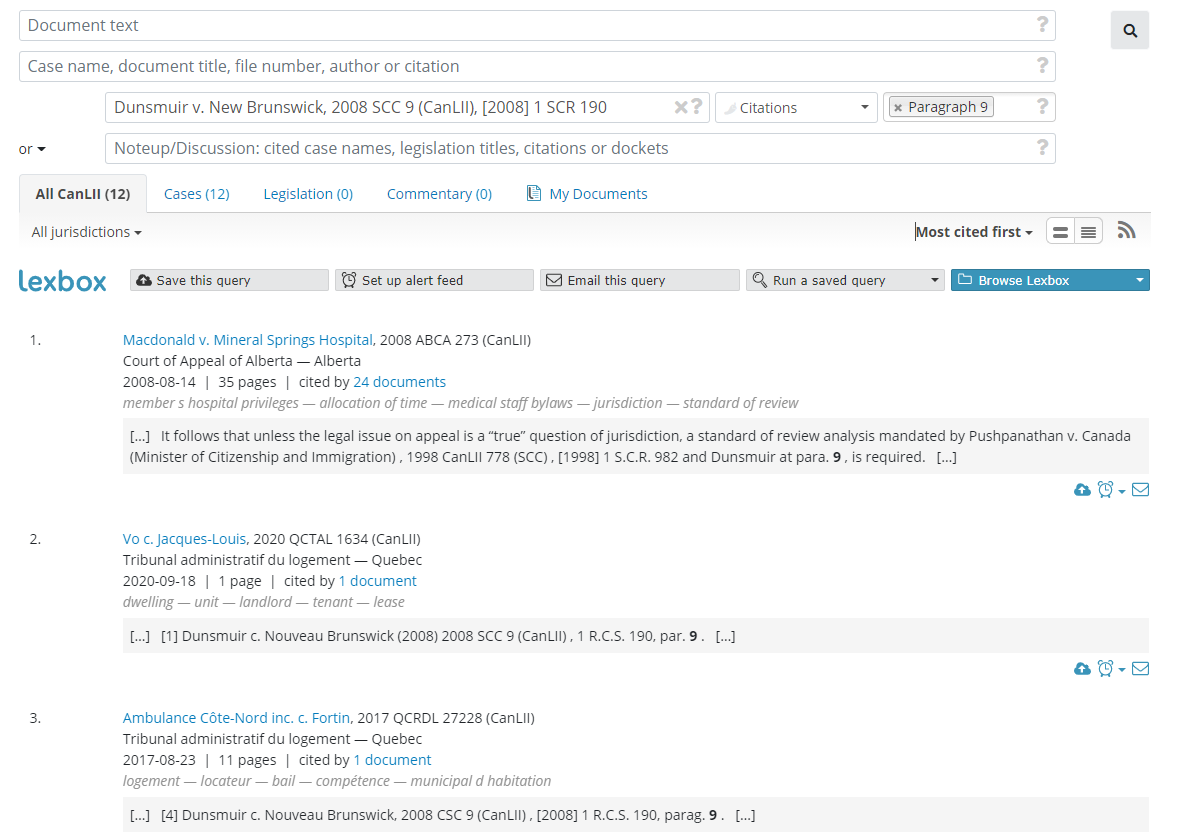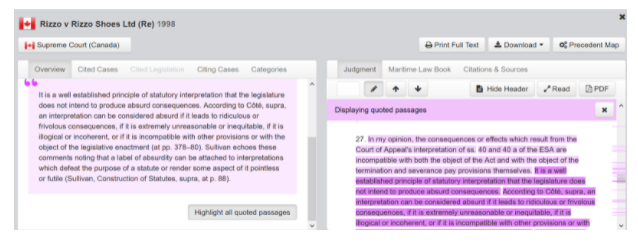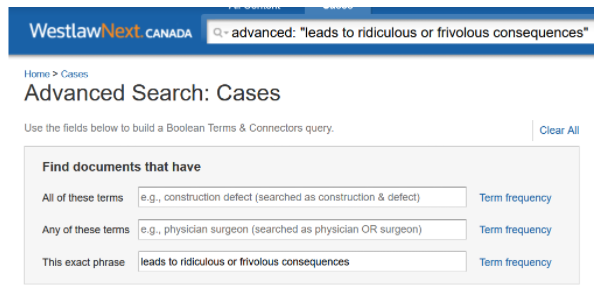We all have a few tricks up our sleeve when it comes to performing legal research. We sometimes share them with clients. And sometimes, we like to use those tricks to hunt down seemingly impossible to find material and wow them. Because nothing is “impossible” for law librarians.
The CALL blog has started a new regular series of research tips and tricks.
Please share your favourite or coolest strategies with Michel-Adrien Sheppard to have them published on the CALL blog.

Nous avons tous nos trucs favoris quand il s'agit de faire de la recherche juridique. Parfois, nous les partageons avec nos clients. Et parfois, nous aimons les épater en utilisant ces trucs et astuces pour mettre la main sur des informations apparemment impossibles à trouver. Car rien n’est « impossible » pour des bibliothécaires de droit.
Le blogue de l'ACBD a lancé une nouvelle série sur les trucs et astuces de recherche.
SVP partagez vos stratégies les plus intéressantes ou les plus « cool » avec Michel-Adrien Sheppard afin de les faire publier sur le blogue de CALL/ACBD.
 Today: Noting Up Specific Paragraphs of Cases (by Sharona Brookman, Reference Librarian, Osgoode Hall Law School, York University, Toronto).
Today: Noting Up Specific Paragraphs of Cases (by Sharona Brookman, Reference Librarian, Osgoode Hall Law School, York University, Toronto).

Have you ever wanted to find cases that deal with a specific section of a case, but don’t want to look through all the cases that cite your case? Here are some tips to do just that.
CanLII
If you want to note up a particular paragraph on CanLII, look for the text box to the right of the case paragraph that interests you.
The example below is taken from Dunsmuir v. New Brunswick, 2008 SCC 9.

The number in the box on the right (in this case "12") gives the number of cases that cite paragraph 9. Click on the box, and it will open up different functionalities. Click on "Citing documents" it will take you to the list of cases that mention paragraph 9.

JustisOne
JustisOne (also known as vLexJustis) is a huge subscription-based caselaw database that includes Canadian cases and has a feature similar to CanLII for finding cases that cite a specific paragraph of a case. Here’s how to do it:
-
Click on the settings icon and select Canada as your jurisdiction.
-
Search for a case, e.g. Rizzo v. Rizzo Shoes Ltd. (Re), [1998] 1 SCR 27, 154DLR 4th 193.
-
The case appears on the right side of the screen. The paragraph or paragraphs that are most heavily cited appear on the left side of the screen, along with an option to highlight all quoted passages. In this case, para. 27 is cited most frequently.
-
Click on “Highlight all quoted passages”. “Displaying quoted passages” now appears on top of the case, along with a “heat map” in varying shades of purple running along the right-hand side of the screen. The darker the shade of purple, the more that paragraph has been cited by other cases.
-
Scroll down the case until you see the paragraph that interests you. Using paragraph 27 as an example, you’ll see that most of it is highlighted in the darkest shade of purple, as this is the part that has been cited most often.

Left click on any part of this section and a “Quoted in” list of citing cases will come up on the left. You can scroll through all the cases and click on any of them to go to the citing case, with the option of going to the specific paragraph in that case that cites the Rizzo v Rizzo Shoes case.
The list of citing cases includes cases from all the different jurisdictions JustisOne covers. If your subscription doesn’t include a specific jurisdiction you will still be able to see the citation for the case but won’t be able to access it through JustisOne. Links to free sources to the case may be available, for instance to New Zealand cases on the New Zealand Legal Information Institute (NZLII).
Lexis Advance and/or Westlaw Canada
On Lexis Advance Quicklaw and WestlawNext Canada there is no automatic or perfect way to do this, but there’s a partial workaround. Select some consecutive words in the paragraph that are likely to be cited.
The words should be distinct enough so as not to appear exactly in the same way in any other case and short enough that a search engine can handle the search.
Try 5 to 8 words. Then do a phrase search in a full text database. In Westlaw select Cases, use the Advanced Search function and enter the terms in the "This exact phrase" search box.

In Quicklaw select cases, use the Advanced Search function and put quotation marks around the phrase.
With thanks to CanLII's Sarah Sutherland, vLex Justis’s Mary Ibrahim and Ken Fox of the Law Society of Saskatchewan.